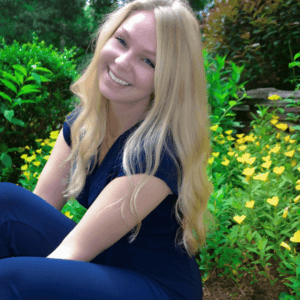“Great Bay was the steppingstone I needed to start my career.”
 Medical assistant Alannah Kunde offers a classic example of the fast-track career available to people who enroll in short-term professional development classes through the Business & Training Center at Great Bay Community College.
Medical assistant Alannah Kunde offers a classic example of the fast-track career available to people who enroll in short-term professional development classes through the Business & Training Center at Great Bay Community College.
Kunde works as a medical assistant at the Center for Wellbeing in Portsmouth. She enrolled at Great Bay in summer of 2015 and graduated from the medical assisting program at the Business & Training Center that December. In 2016, she became a Certified Clinical Medical Assistant, passing the national exam “thanks to the knowledge I grained from my time at Great Bay.”
How did you benefit from your education at Great Bay?
“Great Bay was the steppingstone I needed to start my career. I was very eager to join the workforce full time, and the speed of the accelerated program helped keep the finish line in sight. When you attend class for 40 hours a week, you build a close relationship with your teachers and classmates. It always felt like our teachers were rooting for us and were proud of us. For me, this was huge because I always felt supported and knew I had the tools I needed to succeed.”
What attracted to the Center for Wellbeing and why do you enjoy working there? What is it and what do you do?
“I started working at the Center for Wellbeing in March of 2021. I enjoy working there most because of the atmosphere and the relationship we have with our patients and clients. They offer an amazing work-life balance for their employees, and I don’t ever leave work feeling stressed about my workload or day-to-day tasks.
We offer multiple services and therapies for our patients, all which help them avoid unnecessary medications or surgeries. I’d say what we’re most known for is our incredible metabolic reset weight-loss program. We also offer knee gel injections, ozone therapy, and allergy testing/immunotherapy. All of these help reduce inflammation, therefore reducing pain and giving people the ability to sustain a happier and healthier life.”
What is your role there? What is your title and what do you do?
“I work as a Certified Medical Assistant. I have both clinical and administrative duties. Typically, I spend my day preparing our allergy and gel patients for their appointments by obtaining their vitals and inputting medical information. I am also responsible for our immunotherapy patients, and I administer immunotherapy injections. This is to help people with environmental allergies have fewer symptoms by slowly building up their immunity.
When I’m not working directly with patients, I am usually working on calling insurance companies to check on patient’s eligibility and benefits. In short, I’m looking to see what services each patient’s insurance will cover.”
How did Great Bay help prepare you for this work, specifically? What this non-surgical approach to healing part of your training?
“Great Bay helped prepare me for working as a medical assistant by giving me general anatomy and physiology knowledge and teaching me the basics of obtaining vitals and performing point-of-care testing. As a hands-on learner, I will say that I gained most of my skills and confidence by actually working in the field. I retain information and skills best by repetition. Because of this, having an externship as part of the medical assisting program was very beneficial for me.”
What was your career path?
“After leaving Great Bay, I immediately started working in pediatrics. I worked in pediatrics for three years, and then I started working in pain management. From there is where I started working at the Center for Wellbeing.
Now that I have my CCMA certification, it is my responsibility to renew my certification every two years. I obtain 10 continuing education credits prior to the renewal. I do this by doing online trainings, readings followed by quizzes, or attending seminars.”
Could you talk about the pride you have in your work, and why medical assistants are so valuable in the healing process and the road to wellbeing?
“A great medical assistant is very valuable to any medical practice. We tend to be the provider’s ‘right-hand man,’ so to speak. My role is to help make my provider’s day as smooth as possible, while also making sure that each patient feels heard, respected, and cared for.
I think a lot of people don’t realize that, typically, when you step into your doctor’s office, the person who calls you in from the waiting room and gets you ready is more often than not a medical assistant. I think we can all remember a time where we went to our appointments and leave thinking to ourselves, ‘That person was really nice, I feel cared for.’
That’s how I want every patient to feel when I leave the room, and I want them to leave our office with a positive experience.”

